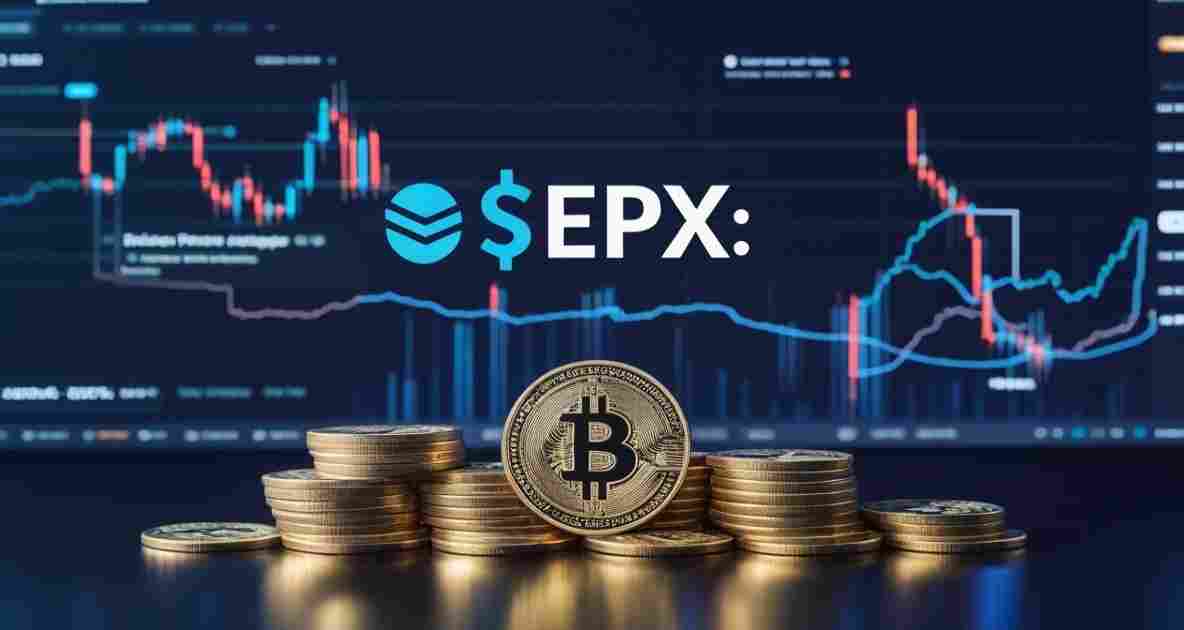Ellipsis ($EPX) is the native token powering Ellipsis Finance, a decentralized finance (DeFi) platform designed to provide efficient stablecoin swaps with minimal slippage. EPX plays a crucial role in incentivizing liquidity providers, enabling governance participation, and boosting rewards for engaged users. 📌 Related: Crypto Arbitrage Trading: Profit from Price Gaps
Ellipsis Finance
Definition: Ellipsis Finance is a stablecoin-focused DeFi platform that offers low-slippage token swaps and yield farming. Built on Binance Smart Chain (BSC), it enables users to earn rewards by providing liquidity to stablecoin pools. Ellipsis Finance: A Curve Finance fork that provides efficient stablecoin swapping and yield farming.
Key Points:
- Stablecoin swapping: low-slippage exchange for stablecoins like USDT, USDC, and DAI.
- Yield farming & staking: Users earn rewards for providing liquidity.
- Low fees: Built on Binance Smart Chain (BSC) for cheaper transactions.
🔹 Example: A user deposits USDT and BUSD into Ellipsis liquidity pools and earns fees from stablecoin swaps while farming EPS tokens for extra rewards.
📌 Related: Understanding Blockchain Technology: The Future of Finance
Key Functions of $EPX: Vote, Lock, and Boost
1. Voting Power & Governance
EPX holders can vote-lock their tokens to receive vlEPX (vote-locked EPX), which grants governance rights. Users can vote on:
- Pool incentives for liquidity providers
- Eligibility of pools to receive rewards
The longer you lock EPX, the more vlEPX you receive, increasing your influence on platform decisions.
📌 Related: Crypto Investment Strategies: Maximize Your Returns
2. Boosted Rewards for Liquidity Providers
Vote-locking EPX enhances liquidity provider rewards by up to 2.5x, ensuring higher earnings for users who commit their tokens.
3. Earning Trading Fees
Locking EPX allows users to earn a share of trading fees collected by the platform. These fees are distributed in the same assets as collected—e.g., renBTC fees are paid in renBTC, BUSD fees in BUSD. 📌 Related: Pairs Trading in Cryptocurrency: A Beginner’s Guide
How EPX Locking and Fee Distribution Works
- Fees are accumulated weekly and paid out the following week.
- Your share of the rewards depends on the vlEPX you hold at the end of the earning period.
- Example: If Alice owns 50% of the vlEPX, Bob 30%, and Charlie 20%, their rewards are distributed accordingly.
Why Lock EPX?
Locking EPX maximizes your earnings and influence on Ellipsis. Whether you’re a liquidity provider or a governance participant, vote-locking ensures long-term benefits while enhancing the platform’s stability.
Take Control of Your EPX Holdings Today
By locking, boosting, and voting, you can fully leverage the power of Ellipsis Finance and maximize your DeFi gains. Don’t just hold EPX—make it work for you! 🚀
Top 5 FAQs About $EPX and Ellipsis Finance
1. What is $EPX, and how does it work?
$EPX is the native token of Ellipsis Finance, used for incentivizing liquidity providers, participating in governance, and boosting rewards. Users can vote-lock their EPX to receive vlEPX, which grants governance rights and additional platform benefits.
2. What is vlEPX, and why is it important?
vlEPX (vote-locked EPX) is earned when users lock their EPX tokens for a specific period. It is non-transferable but provides governance rights, boosted liquidity rewards (up to 2.5x), and a share of trading fees collected by the platform.
3. How does locking EPX help me earn more rewards?
By locking EPX, users:
- Earn a share of Ellipsis Finance trading fees in the same asset collected (e.g., BUSD rewards in BUSD).
- Get higher yields on provided liquidity.
- Gain voting power to decide which pools receive incentives.
4. How often are trading fees distributed to EPX lockers?
Fees are collected over a one-week period and distributed the following week. The amount of fees a user receives depends on their vlEPX share at the end of the earning period.
5. Can I withdraw my EPX after locking it?
Once locked, EPX cannot be withdrawn until the lock period expires. Users can lock EPX for up to one year, with longer lock durations providing greater governance power and higher earnings.
Post Views: 77
